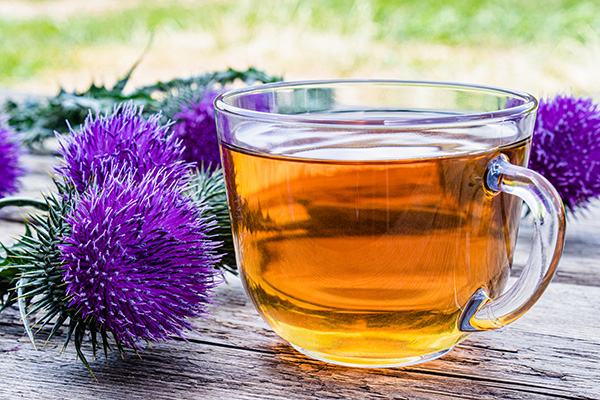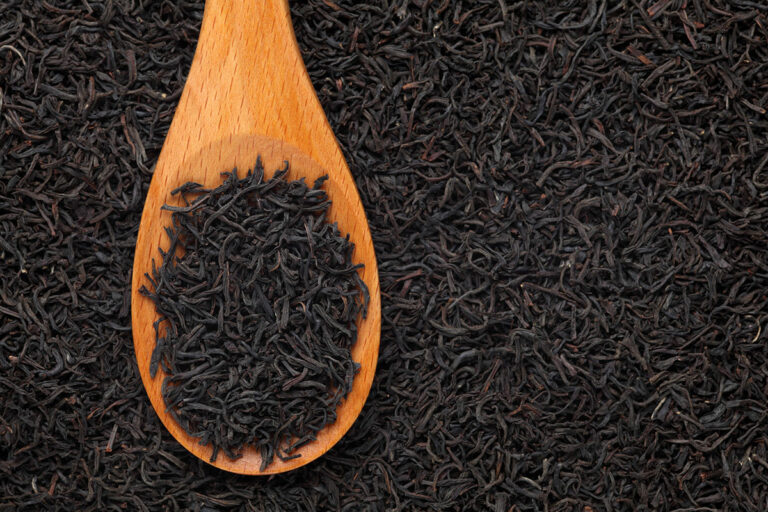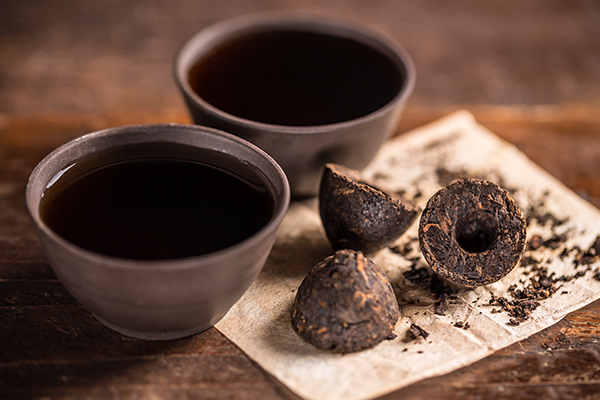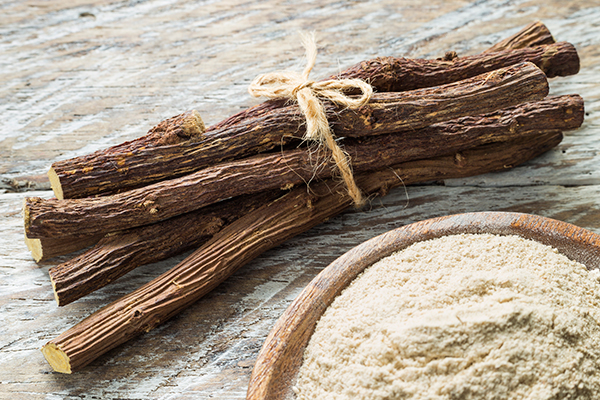Mugwort Tea Benefits and Side Effects
Mugwort tea is an ancient herbal beverage with numerous health benefits and potential side effects.
In this article, we’ll explore what mugwort is, the taste of its tea, its benefits and side effects, as well as who should avoid drinking it. We’ll also provide a recipe for making your mugwort tea and answer frequently asked questions.
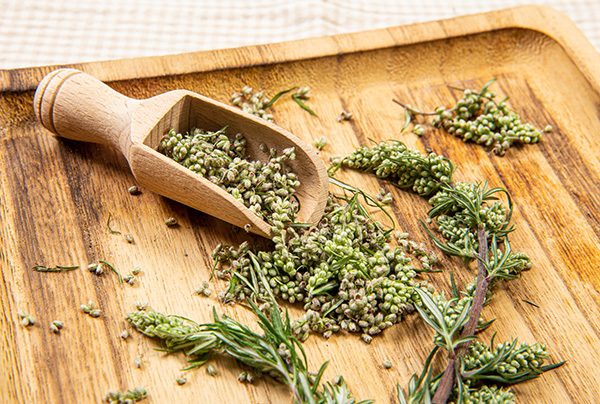
What Is Mugwort?
Mugwort (Artemisia vulgaris) is a perennial herb native to Europe, Asia, and North Africa. It has been used for centuries in traditional medicine to treat various ailments such as digestive issues, menstrual problems, and anxiety. The plant is known for its silvery-green leaves and the bitter, aromatic taste that it imparts to teas and other concoctions.
What Does Mugwort Tea Taste Like?
Mugwort tea has a unique flavor profile. It is often described as bitter and earthy, with hints of sweetness and a slightly pungent aroma. The taste can be somewhat intense for those who are new to it, but many people come to appreciate its complexity over time.
Mugwort Tea Benefits
Here are some potential benefits of mugwort tea:
- Digestive Health: Mugwort tea is known for its ability to soothe gastrointestinal issues such as indigestion, bloating, and gas. It may also help stimulate the production of bile, which can aid in digestion and the absorption of nutrients.
- Menstrual and Hormonal Health: Mugwort tea has been traditionally used to relieve menstrual cramps and regulate irregular periods (1). It is believed to have emmenagogue properties, which means it can stimulate blood flow in the pelvic area and uterus.
- Sleep and Relaxation: Mugwort tea may have sedative and relaxing effects, which can help promote better sleep and reduce stress. Some people use it to induce lucid dreaming or enhance dream recall.
- Antioxidant Properties: Mugwort contains various antioxidants, such as flavonoids, which can help protect the body from oxidative stress and may reduce the risk of chronic diseases (2).
- Anti-inflammatory and Antimicrobial: Mugwort tea may help reduce inflammation in the body and possesses antimicrobial properties, which can help fight infections and protect against harmful microorganisms.
- Immune Support: The antioxidants and antimicrobial properties of mugwort tea may help to strengthen the immune system and protect against common illnesses.
- Potential Neuroprotective Effects: Some studies suggest that mugwort may have neuroprotective properties, which could help protect brain cells from damage and potentially support cognitive function.
Please note that while mugwort tea has potential health benefits, more research is needed to fully understand its effects on the human body.
Mugwort Tea Side Effects
Mugwort tea has several potential side effects, and it’s crucial to be aware of them before incorporating it into your routine.
Some possible side effects include:
- Allergic reactions: People allergic to plants in the Asteraceae family, such as ragweed, chrysanthemums, and marigolds, may also be allergic to mugwort (3). Symptoms of an allergic reaction can include itching, rashes, and difficulty breathing. If you suspect an allergy to mugwort, stop using it and consult a healthcare professional.
- Pregnancy complications: Mugwort tea is not recommended for pregnant women as it may stimulate uterine contractions, increasing the risk of miscarriage or premature labor. If you’re pregnant or breastfeeding, it’s best to avoid mugwort tea and consult your healthcare provider for advice on herbal remedies.
- Gastrointestinal discomfort: In some cases, drinking mugwort tea may cause stomach upset, diarrhea, or other gastrointestinal issues. If you experience persistent discomfort after consuming mugwort tea, discontinue use and consult your healthcare provider.
Who Should Not Drink Mugwort?
The following individuals should avoid drinking mugwort tea:
- Pregnant or breastfeeding women
- Individuals taking anticoagulant or antiplatelet medications
- People with allergies to plants in the Asteraceae family, such as ragweed, chrysanthemums, and marigolds
- Those with chronic gastrointestinal issues
Consult your healthcare provider before starting any new herbal supplement, including mugwort tea.
How to Make Mugwort Tea
Making mugwort tea is simple and requires only a few ingredients:
- 1 teaspoon of dried mugwort leaves
- 1 cup of boiling water
- Optional sweetener, such as honey or stevia
Instructions:
- Place the dried mugwort leaves in a teacup or mug.
- Pour the boiling water over the leaves.
- Allow the tea to steep for 5-10 minutes.
- Strain the tea to remove the leaves.
- Sweeten the tea to taste, if desired.
Enjoy your mugwort tea while it’s still warm. It’s best to consume it in the evening or before bedtime to take advantage of its calming properties and potential dream-enhancing effects.
Final Thoughts
Mugwort tea is a fascinating herbal beverage with a long history of traditional use. Its potential benefits include improved digestion, enhanced dream recall, menstrual relief, and anxiety reduction.
However, it’s important to be aware of its side effects and to avoid consuming mugwort tea if you fall into one of the at-risk groups.
FAQ
Does Mugwort Tea Induce Period?
Mugwort tea has been traditionally used to stimulate menstruation in women experiencing irregular periods or amenorrhea (absence of menstruation). However, it’s essential to consult a healthcare professional before using mugwort tea for this purpose, especially if you have an underlying medical condition.
Can I Drink Mugwort Tea While Pregnant?
Pregnant women should avoid drinking mugwort tea as it may stimulate uterine contractions, potentially leading to a miscarriage or premature labor. If you’re pregnant or breastfeeding, consult your healthcare provider before using any herbal remedies.
Does Drinking Mugwort Tea Give You a Buzz?
While some people report feeling mildly euphoric or relaxed after drinking mugwort tea, it does not have psychoactive properties like those found in substances such as marijuana or alcohol. The “buzz” some people experience may be attributed to the calming and stress-relieving effects of the tea.
Can You Drink Mugwort Tea Everyday?
It’s generally considered safe to drink mugwort tea in moderation. However, consuming it every day for an extended period may lead to unwanted side effects. As with any herbal remedy, listening to your body is essential.
How Many Cups of Mugwort Can I Drink a Day?
One to two cups of mugwort tea per day is generally considered safe for most individuals. However, it’s important to monitor your body’s response and consult a healthcare professional if you experience any adverse effects or have concerns.
What Are the Pros of Smoking Mugwort?
Smoking mugwort is believed to promote relaxation and calmness, much like drinking mugwort tea. Some individuals also report enhanced dream recall and vividness after smoking mugwort. However, smoking any substance carries inherent risks, including respiratory issues and potential addiction. It’s essential to weigh the potential benefits against the risks and consult a healthcare professional before using mugwort in this manner.

